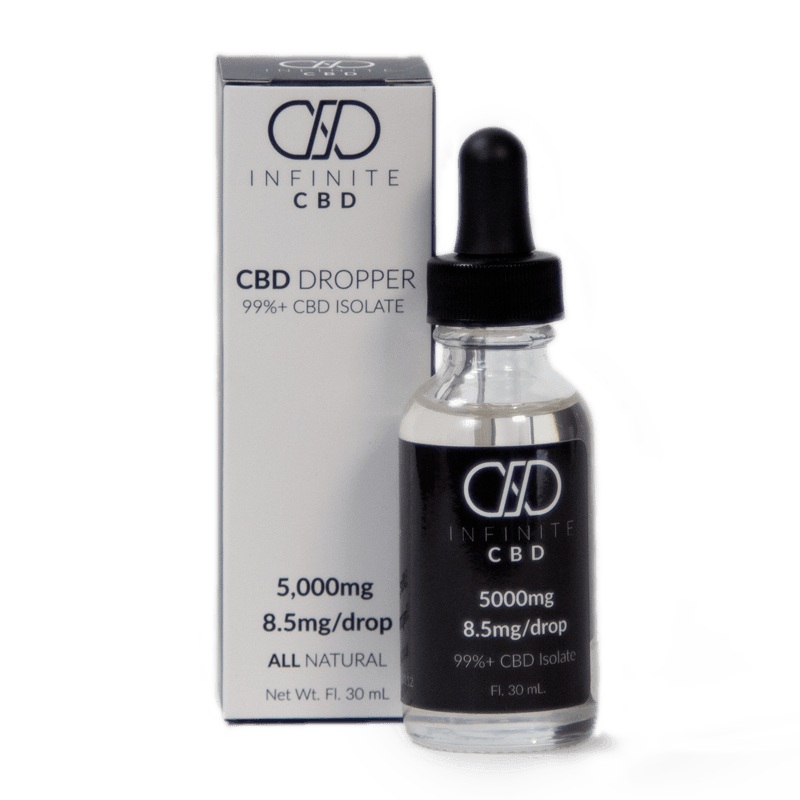People take CBD products (such as CBD oils) for a wide variety of health issues. But can it also promote weight loss? There’s no definitive answer, but the research is promising.
Studies suggest that CBD can decrease appetite, although this effect seems to require large doses. There’s also some evidence that CBD can turn white fat into “good” brown fat, which helps your body burn calories.
On top of that, CBD can indirectly help you maintain healthy body weight by improving anxiety, pain, sleep, and other effects that support your overall well-being.
Read on to learn more about what potential benefits of CBD for weight loss.
Obesity Overview
Obesity, the medical term for excessive body fat, is one of the leading health problems worldwide. Your body accumulates fat when you take in more calories than you burn through daily activities, which eventually makes you overweight or obese. ¹
Besides being a cosmetic concern, obesity also increases the risk of many health disorders, particularly diabetes, heart disease, high blood pressure, and some cancers.
Obesity is caused by the interplay of multiple factors, including stress and lack of sleep. However, the leading contributors are an unhealthy diet and lack of physical activity.
That’s why positive dietary habits and exercise are widely recognized as the most effective treatment for obesity.
Obesity Symptoms & Pathology
Body fat and obesity are usually measured using the body mass index (BMI), which is the relationship between a person’s weight and height.
A BMI of 18.5 to 24.9 is considered healthy, whereas 25-29 is overweight. ² While this isn’t as dangerous as obesity, being overweight can also increase your risk of certain health problems.
Meanwhile, obesity is classified as a BMI of more than 30.
Can CBD Help With Weight Loss?
Researchers are just starting to look at CBD’s potential as a weight loss aid. Although more evidence is needed, the findings suggest that it could help in multiple ways along with having other health benefits.
Direct Benefits
First and foremost, animal research has shown that CBD can act as an appetite suppressant. Although the evidence is not conclusive, several studies reported that rats ate less food or gained less weight after being given CBD. ³ ⁴
Another 2020 animal study looked at the effects of CBD in rats fed a high-fat diet, which is used to mimic diet-induced obesity in people. The researchers found that CBD reduced the production of fat in the muscle and improved insulin resistance, which can contribute to weight gain. ⁵
Petri dish studies have also discovered some promising effects. In one study, CBD lowered the lipid (fat) content of liver cells. ⁶
Meanwhile, a 2016 Korean study found that CBD encouraged regular white fat to take on the characteristics of brown fat, a special type of “good” fat tissue that burns calories for thermogenesis (producing heat). ⁷
The “browning” of white fat is currently being explored as a possible treatment for obesity. ⁸
We also know that several triggers, including exercise and exposure to cold temperatures, can promote this browning.
Indirect Benefits
CBD’s anti-inflammatory, antioxidant, anxiolytic (anxiety-reducing), antidepressant, analgesic (pain-relieving), sedative, and other beneficial properties can also make it easier to maintain a healthy body weight indirectly. ⁹
For example, research has established a link between anxiety, depression, and being overweight or obese.¹⁰ ¹¹ This isn’t surprising as these issues can lead to unhealthy eating habits and a lack of physical activity.
CBD can also help by lowering pain and promoting sleep, both of which can contribute to a healthy lifestyle. ¹²
Additionally, obesity causes low-grade chronic inflammation, so CBD’s anti-inflammatory effects may be beneficial as well. ¹³
The Endocannabinoid System and Weight Loss
Although CBD works through many pathways, the most relevant for weight loss is the endocannabinoid system (ECS).
Made up of cannabinoid receptors (CB1 & CB2), endocannabinoids, and special enzymes, this system works to maintain a state of internal balance called homeostasis.
To achieve this, the ECS regulates important bodily functions, including those related to your weight: appetite, metabolism, thermogenesis, and more.
For example, it’s well-established that endocannabinoids acting on the CB1 receptor can increase food intake and lead to weight gain. ¹⁴
In fact, the effects of THC on this receptor are largely responsible for the infamous “marijuana munchies” experienced by cannabis users.
Research also suggests that the ECS is overactivated in obesity, which may be due to increased levels of endocannabinoids or overexpression of cannabinoid receptors. ¹⁵
As such, influencing this system through cannabinoid-based medicines from the cannabis plant could be a promising option for promoting weight loss and treating obesity.
One such medicine called rimonabant was already shown to promote weight loss by blocking CB1 receptors but was discontinued due to psychiatric side effects. ¹⁶
In the case of CBD, it can change how CB1 receptors respond to other cannabinoids, potentially reducing their appetite-stimulating effects. This may explain why high-CBD strains of cannabis have a weaker effect on increasing appetite than THC-rich ones. ¹⁷
Additionally, CBD has been shown to reduce the breakdown of anandamide, one of the body’s two main endocannabinoids. ¹⁸
Last but not least, we know that CBD interacts with non-endocannabinoid receptors involved in lipolysis (the breakdown of stored fat), glucose and lipid metabolism, and other processes that can aid weight loss.
What Does the Research Say?
There haven’t been any human studies of CBD for weight loss.
However, reduced appetite and weight loss are noted as possible side effects of CBD in clinical trials of epilepsy patients. ¹⁹
Still, most of these studies used large daily oral dosages of 5–20 mg per kg, which translates to 310–1240 mg of CBD for the average 62 kg adult. ²⁰
It’s also important to note that another potential side effect of CBD — diarrhea — can play a role in weight loss.
In one study, patients (age 1–30) were given CBD in doses of 2–5 mg/kg per day and raised to a maximum of 25–50 mg/kg per day. The study found that 19% of the patients experienced decreased appetite and diarrhea, with 7% gaining weight and 6% losing it. ²¹
Nonetheless, there’s far more potential for CBD to support weight loss indirectly, such as by lowering anxiety, improving sleep, and reducing pain.
For example, one Japanese study of 37 teenagers with a social anxiety disorder (SAD) found that it significantly improved anxiety, unlike placebo. ²² Meanwhile, a 2019 study of 97 chronic pain sufferers found that full-spectrum CBD soft gels improved pain and sleep quality. ²³
Since these kinds of issues can contribute to getting less exercise, poor sleep, and an unhealthy diet, improving them with CBD can support your weight loss efforts.
Using CBD for Weight Loss
There are many ways to take CBD for weight loss. However, the overall best option is CBD oil thanks to its cost-effectiveness, efficient absorption, and relatively long-lasting effects.
We also recommend looking for a product with a full-spectrum formula. This type of whole-plant extract contains all of the beneficial cannabinoids, terpenes, flavonoids, and other compounds naturally present in hemp.
They enhance the beneficial impact of CBD, producing what researchers have dubbed the entourage effect. ²⁴
As one final tip, it’s best to take CBD daily because weight loss is a long-term goal.
How Much CBD Should I Take for Weight Loss?
There’s no one right dosage of CBD for weight loss. It’s different for everyone and depends on your body weight, genetics, and the type of product you’re using.
As a result, health experts recommend the “start low and go slow” approach to dosing cannabinoids. ²⁵
This means starting with a small dose of CBD (10-15 mg) and waiting a few hours to see how it affects you. You can then gradually up the dosage over time until you settle on the amount that works best for you.
Are There Any Side Effects?
CBD has been extensively studied and confirmed to be a safe, well-tolerated substance. Its potential side effects include: ²⁶
- Tiredness and drowsiness
- Dry mouth
- Diarrhea and nausea
- Low blood pressure
- Lightheadedness
CBD can also lead to changes in appetite or weight. In most cases, this means reduced appetite and weight loss, although the opposite effect has also been reported in some patients.
Having said that, these side effects are usually minor and require taking large oral doses of pure CBD.
As such, they’re not likely to happen for most CBD users, who typically take sublingual CBD oil instead of capsules and other oral products, and frequently choose full-spectrum formulations over those made with pure CBD.
Still, it’s important to consult your doctor if you’re taking other weight loss medications since large doses of CBD can influence the effects of some drugs.
Conclusion
In summary, there are no human studies of CBD for weight loss.
Although some clinical trials mention reduced appetite and weight loss as possible side effects, the CBD dosages used were very high, so it’s not a realistic solution.
That’s why exercise coupled with a healthy diet remains the best approach to losing weight.
Still, CBD can help you lose weight indirectly by lowering anxiety, reducing pain, improving sleep, and other potential benefits that support your overall health and well-being.
Given its safety and numerous effects, CBD is a great addition to a dedicated weight loss regimen. If you decide to try CBD, we recommend going with a full-spectrum CBD oil and using it daily.







